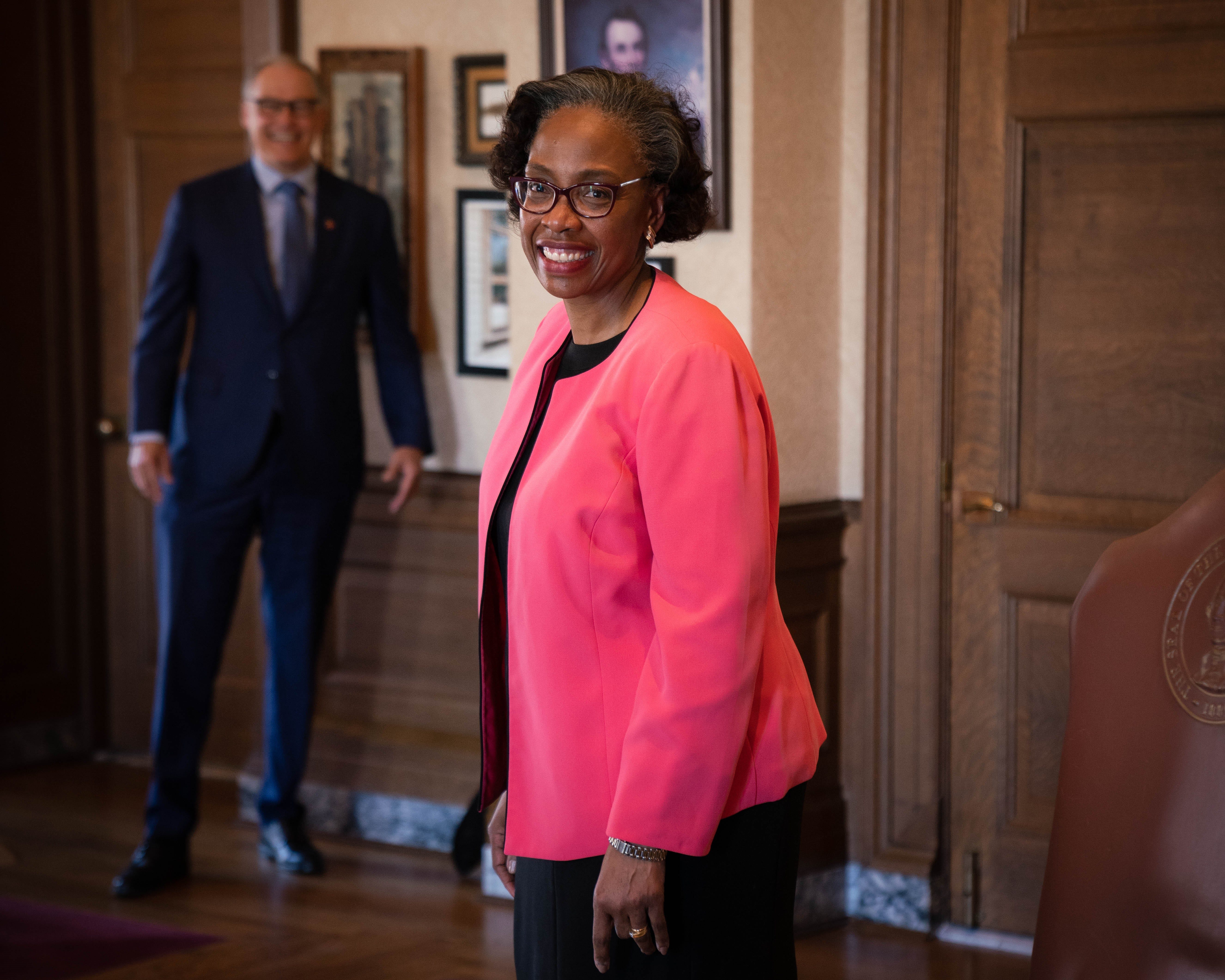
In April, Gov. Jay Inslee announced today the appointment of Justice G. Helen Whitener to the Washington State Supreme Court. She replaces Justice Charles Wiggins, who retired from the bench last month.
Whitener has been a judicial officer since 2013. From 2013 to 2015, she served as a judge on the Board of Industrial Insurance Appeals. Inslee then appointed her to the Pierce County Superior Court in 2015, where she has worked as a judge for over five years, retaining her seat in a 2015 election and winning re-election to a full term in 2016. Before becoming a judge, Whitener litigated criminal cases for 14 years as both a prosecutor and defense attorney.
Whitener is known for her commitment to justice and equity. She serves as co-chair of the Washington State Minority and Justice Commission and as a member of the Civil Legal Aid Oversight Committee. She continues to garner recognition for her work to advance the cause of justice. Last year, Whitener was awarded the Washington State Bar Association’s C.Z. Smith Excellence in Diversity and Inclusion Award, the King County Washington Women Lawyers President Award, the Tacoma-Pierce County Bar Association’s Diversity Award and the Seattle University School of Law’s Woman of the Year Award.
In joining a supreme court that has recently driven major criminal justice reform, and that is generally progressive but often divided, Whitener could determine how boldly it proceeds in years ahead.
Her appointment has drawn attention for boosting the representation of marginalized groups. She is a Black, gay, and disabled immigrant from Trinidad. With her appointment, Washington’s Supreme Court is the most diverse appellate court in the country.
Last year, a Brennan Center for Justice report found that most states’ high courts are “overwhelmingly white and male,” including 24 all-white state supreme courts, and 13 states that have “never seated a person of color as a justice.”
Whitener has often explained that a diverse judiciary — one that fully reflects the population it serves — is essential to maintaining trust and confidence in the rule of law.
“I believe as a marginalized individual, being a Black, gay, female, immigrant, disabled judge, that my perspective is a little different,” she said in February. “So I try to make sure that everyone that comes into this courtroom feels welcome, feels safe, and feels like they’ll get a fair hearing.”

Congratulations, Justice Whitener!
Please contact my office if you, a friend or family member are charged with a crime. Hiring an effective and competent defense attorney is the first and best step toward justice.






